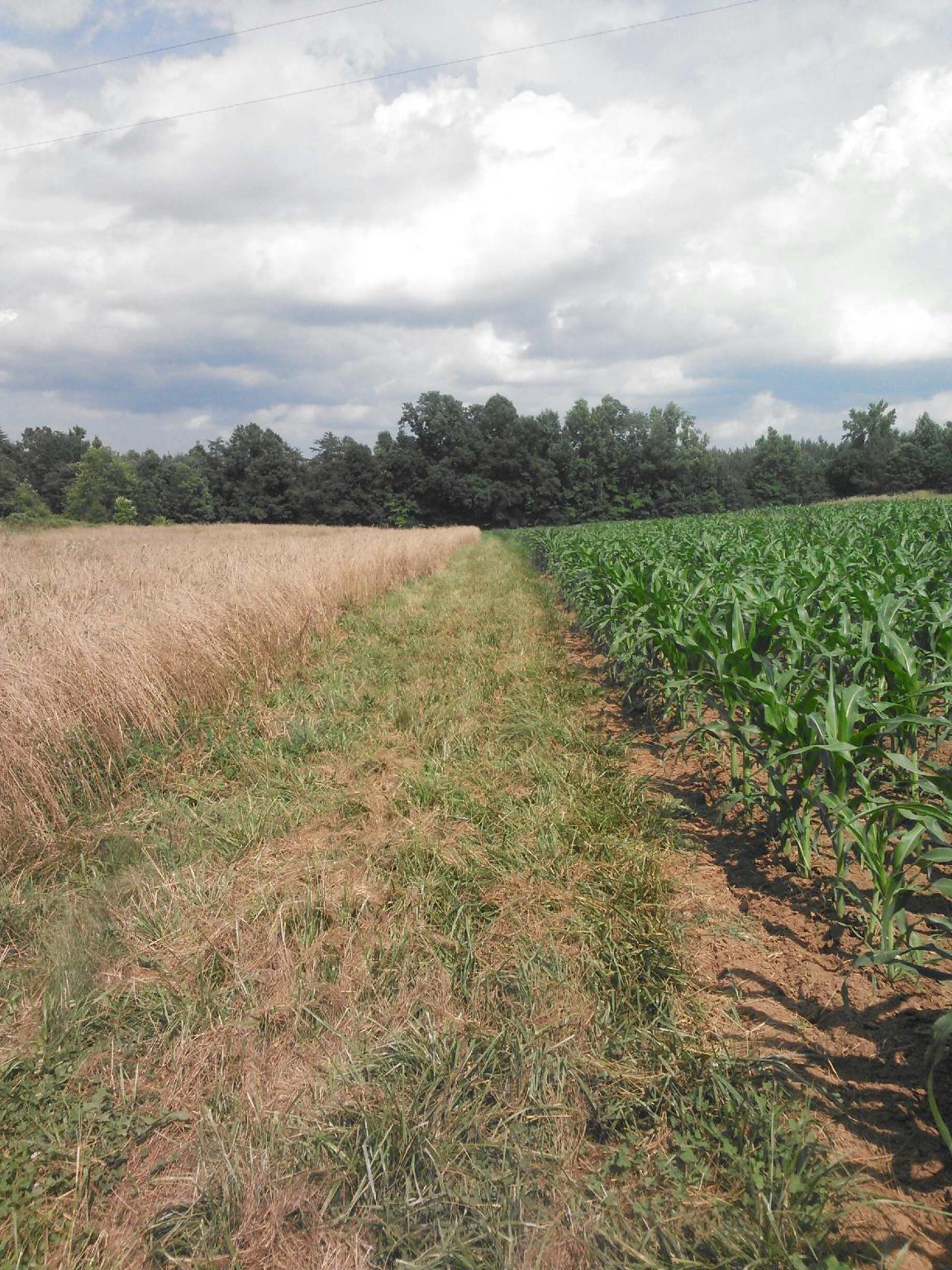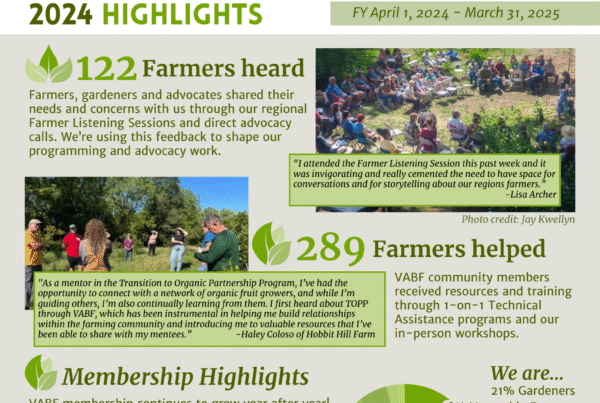Our public investments in organic food production have not kept pace with the organic sector’s growth – and that’s a missed opportunity for domestic economic development. Demand for organic food has exploded, with sales reaching over $60 billion in 2022 and projected to reach nearly $100 billion in the next five years. Four out of five U.S. households regularly purchase organic food, with at least 70% of households buying organic in every state across the country, and organic accounts for 6% of our total food sales. And yet, the U.S. remains a net importer of organic. Why hasn’t domestic organic production skyrocketed alongside consumer demand?
The resources we dedicate to organic in the U.S. lag far behind our investments in other areas of agriculture. In 2018, the Farm Bill – the comprehensive food and agriculture legislation that Congress updates every five years – directed only 0.1% (about $0.5 billion) of its $428 billion budget to organic-specific programs over five years. To match consumer demand, maximize market opportunities for farmers, and fully leverage the benefits of organic agriculture, we need to significantly scale up support for organic – starting with the Opportunities in Organic Act.
The organic sector has grown steadily in the three decades since the 1990 Farm Bill established a rigorous national framework for organic agriculture, with tangible benefits for struggling farming communities. More than half of U.S. farms lose money each year, but organic farms tend to be more profitable. Between 2012 and 2017, organic farm income doubled, while the income of all U.S. farms remained flat. In addition, organic farms – which typically have more crop diversity and practices that build healthy soil – have documented benefits for resilience: organic yields are 30% higher than other farming systems in extreme weather conditions.
The organic sector also provides quality job opportunities – both on and off the farm. Beyond offering more year-round farm employment, the organic sector has a growing workforce of certifiers who oversee compliance with the organic rules, as well as organic farm advisors who assist producers with natural pest management and building healthy soil. The USDA National Organic Program’s Human Capital Initiative supports the next generation of professionals who will serve in these important roles, including through training opportunities for high school and college students. The recently finalized Strengthening Organic Enforcement rule, which will improve accountability and traceability throughout the organic supply chain, will also encourage hundreds of businesses to pursue organic certification – and grow the organic workforce at the same time.
These economic benefits of organic converge powerfully in what researchers have dubbed the “organic hotspot” effect: Regions with higher concentrations of organic operations have higher median household income and employment rates and lower poverty rates.
Resources to support organic supply chains, including organic and other farming organizations, play an integral role in the creation of organic hotspots by supporting organic-relevant education and technical assistance. USDA’s new Transition to Organic Partnership Program – part of the $300 million USDA Organic Transition Initiative that began last year – is weaving organizations across the country into a nationwide network of support for organic transition.
The recently introduced Opportunities in Organic Act would deliver more resources to these organizations and provide flexible funding for the producers and processors they serve – to help unlock the powerful potential of organic agriculture.
We urgently need shifts in our nation’s approach to agriculture. As droughts, wildfire smoke, and extreme weather events become more common, we cannot continue to ask farmers and farmworkers to bear the burdens of stabilizing our food supply alone. Instead, we need to ramp up public investments in proven solutions that promote human, environmental, and economic health at the same time. With stronger support for the full domestic organic supply chain, the benefits of organic will grow, boosting our economy as well as creating a more resilient food system for future generations.







